Information writing enables kids to become the expert. They develop skills to inform and teach about a particular topic. Writing prompts are beneficial because they motivate students and help generate ideas. Read on to learn more about mentor texts, ideas, and assessments. Plus you will find 20 informational writing prompts that empower students.
Definition of Informational Writing
Informational writing uses facts to teach about a topic. The main purpose is to inform or explain. This type of non-fiction writing includes text features such as table of contents, headings, captions, diagrams, glossary, and index.
Example of Informational Writing
There are many forms of information writing. It’s beneficial to immerse students in the genre during a unit. Mentor texts can be used when teaching a mini-lesson to model skills and strategies. These books are also helpful as a reference tool for students during writing time. Below is a list of mentor texts to try out in the classroom.
Information Writing Mentor Texts:
- National Geographic Kids Books
- Let’s Read and Find Out Books
- Who Was/Who Is Book Series
- Who Would Win? Book Series
- Gail Gibbons Books
How to Teach Information Writing
1. Brainstorm Expert Topics:
Students will brainstorm ideas and choose one topic they know a lot about and can be an expert on. Some ideas include a sport, animal, or hobby. Students may even want to discuss ideas at home before choosing a topic.
2. Write Ideas on Paper:
After writers choose a topic, they need to get ideas down on paper. I often have kids do a brain dump. The class sets a timer and students write down everything they know about their topic. It doesn’t have to be organized or look pretty because the content is what matters. This is also a chance for students to see if they have enough information. However, they may need to choose a new topic or do additional research.
3. Organize Ideas:
Students will take their topic and break it down into smaller more focused sections. Each of these sections may become a separate paragraph or chapter later on. Writers can organize this information by saying their topic and touching the palm of their hand. After that, they can list the smaller ideas across their fingers.
4. Create Information Writing:
After all of the planning and preparation, students are ready to start their informational writing piece. There are many different text features that can enhance the writing. Check out the list below.
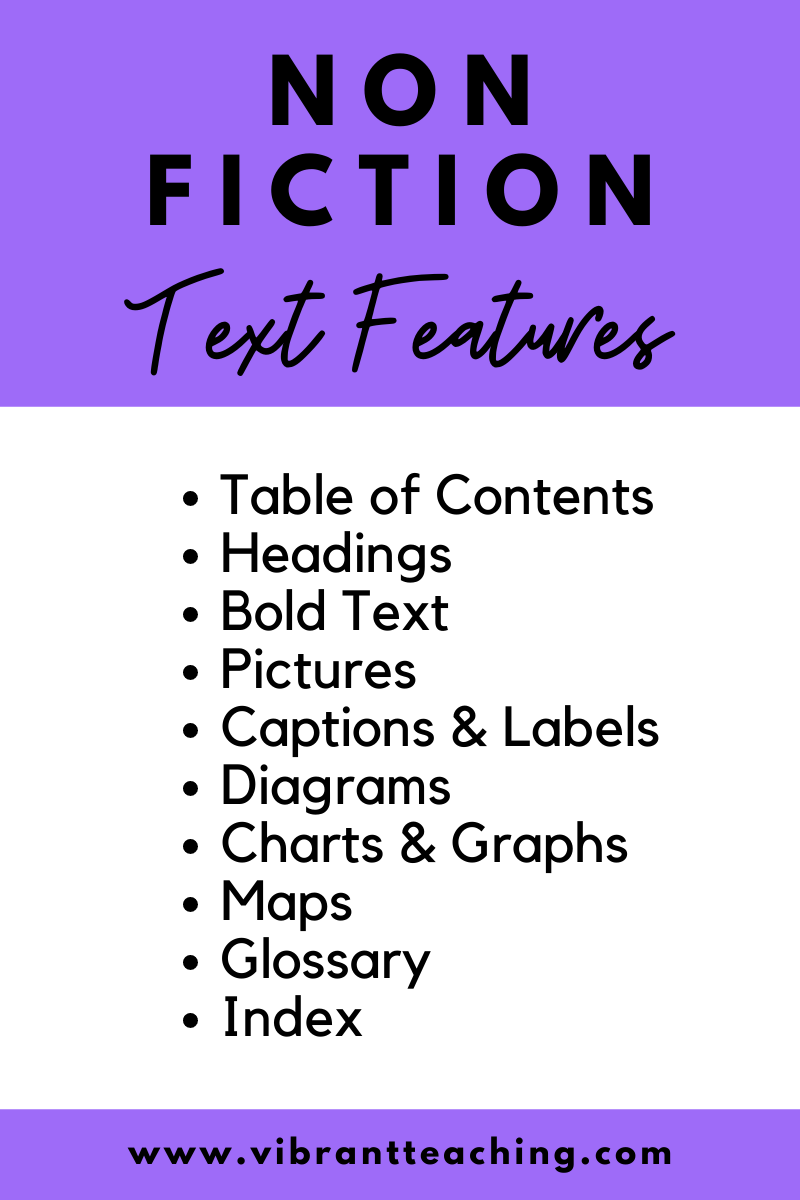
5. Complete Final Copy (optional):
Students can work independently, with a partner, or with the teacher to edit and revise their writing. Checklists and rubrics (see the rubrics section below) are always helpful guides. Most importantly, students should check their work to make sure it contains facts and information instead of opinions.
I like to provide different types of writing paper that match the text features. There are separate pages for the table of contents, glossary, and index. It’s also helpful to have different options of paper with lines and boxes. These picture boxes can show diagrams, charts, graphs, and maps.
Topics for Informational Writing
There are so many great topics for information writing that will enable kids to become the expert. Students can choose something they do really well or know a lot about. Writing prompts effectively help kids generate ideas and get the creative juices flowing more quickly. The list below has 20 empowering prompts that students will love! Also, check out this blog post to learn more about opinion writing prompts: 20 Prompts for Opinion Writing That Motivate Kids
Informational Writing Prompts:
- Choose a pet such as a dog, cat, fish, or hamster. After that, explain how to take care of this pet.
- Imagine someone has never played your favorite game. Explain the steps so they can learn how to play.
- Where could your class go for the best field trip? Choose a place and explain what it has to offer.
- It’s important to keep our Earth clean. Explain 3 or more ways someone can do their part to help the Earth.
- What would it be like to run the school for a day? Explain 3 big changes you would make to your school.
- Explain how to cook or bake your favorite food. Be sure to include some helpful tips.
- Choose a job that’s important and explain what they do at work.
- Compare and contrast the seasons of Summer and Winter. What do they have in common? What makes them so different?
- Explain what you do to get ready in the morning on a school day.
- What kinds of things could you do to cheer someone up if they are sad? Give specific examples.
Prompts Continued . . .
- Kids do chores to help out around the house. Explain how to do one of your chores really well.
- Teach someone how to make the best cup of hot chocolate.
- Choose an animal you know a lot about. After that, explain how they look, act, and live. Include lots of details.
- Explain the life cycle of a plant. What types of things does it need to grow?
- Sometimes kids get bored on a rainy day. Give 3 or more fun ideas they can try.
- Why is it important to get rid of bullying? Tell specific things kids can do to stop bullying in school.
- Think of your favorite sport. Now teach someone everything you know about it.
- In the Fall it’s fun to carve a pumpkin. Explain the steps to carve a pumpkin successfully.
- Explain the ways someone can be a good friend. Be sure to include character traits and how they should act.
- Choose a natural disaster such as a hurricane, tornado, earthquake, or tsunami. Teach someone why this event can be so harmful.
Information Writing Rubrics
Rubrics are a helpful resource for both teachers and students. Teachers can ensure accuracy by using rubrics aligned with the standards. Then these assessments can be used for benchmarks, progress reports, report cards, and conferences. Students can benefit by looking at rubrics beforehand to understand expectations and set goals.
Below you will find three types of informational writing rubrics for various grade levels. Each rubric is aligned with the Common Core Standards and has different benefits depending on your needs. Check out this blog post to learn more about student-friendly, teacher-friendly, and time-saving rubrics: 3 Types of Writing Rubrics for Effective Assessments
Information Writing Conclusion
In conclusion, information writing enables students to become the teacher. This really empowers kids and motivates them to do their best writing so they can teach others. One of the best ways to get students engaged and eager to write is by using writing prompts. Writing prompts are perfect for morning work, writing time, centers, or as a homework assignment. Above all, they will save you lots of valuable time and energy. Did you grab your Free Writing Prompt Guide yet? Click the link to get started!
Genre Based Prompts
Related Articles:
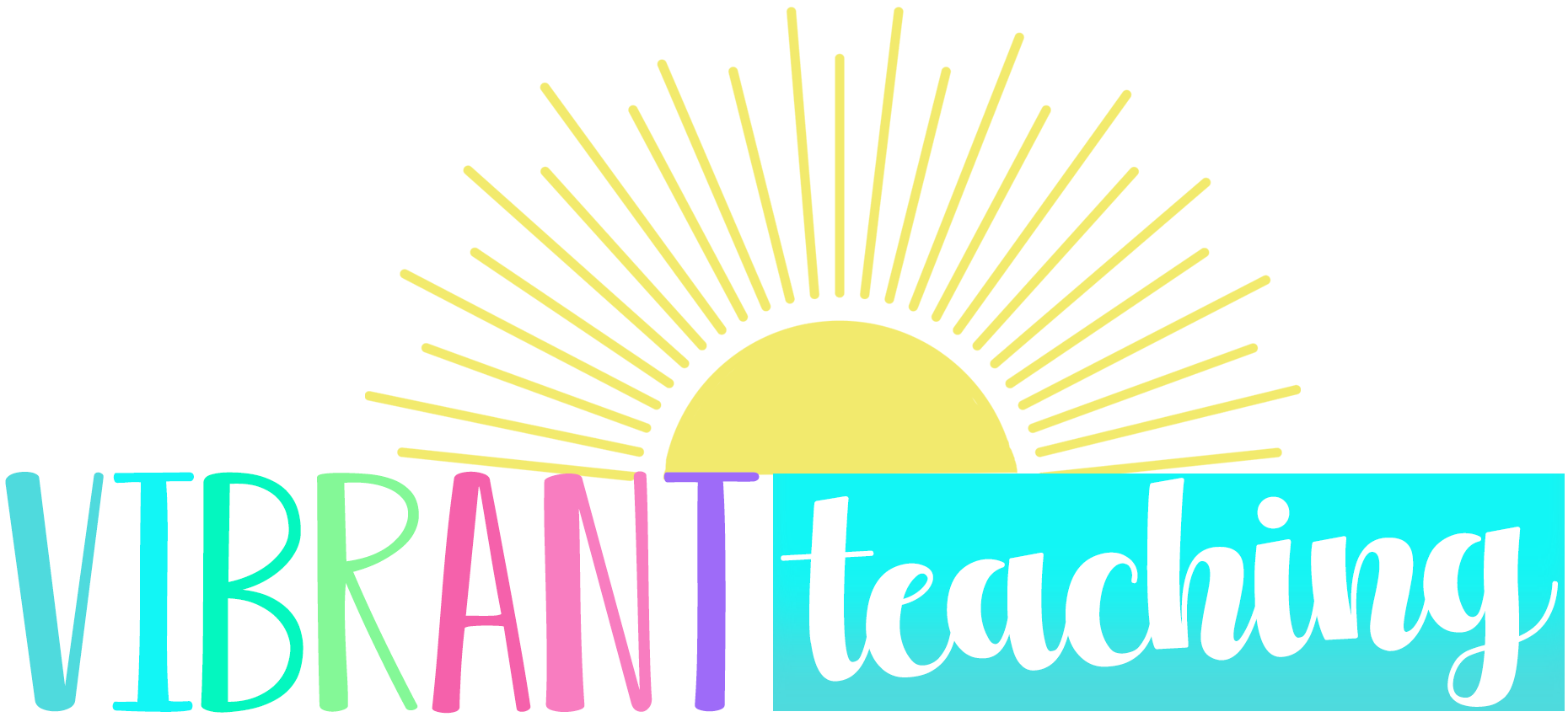
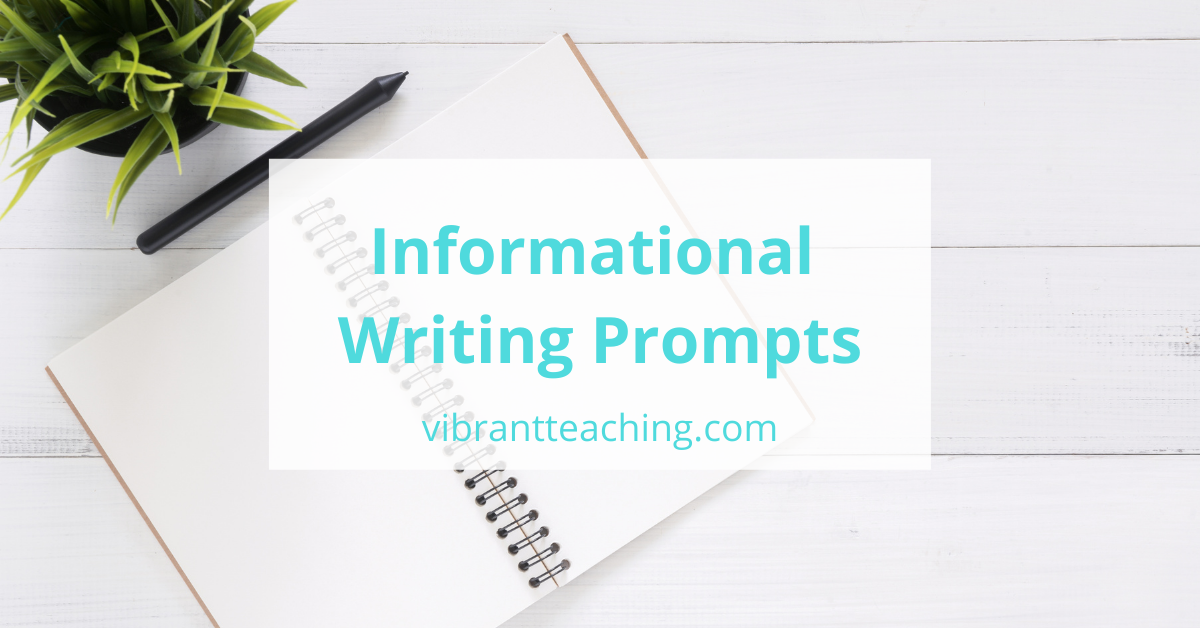
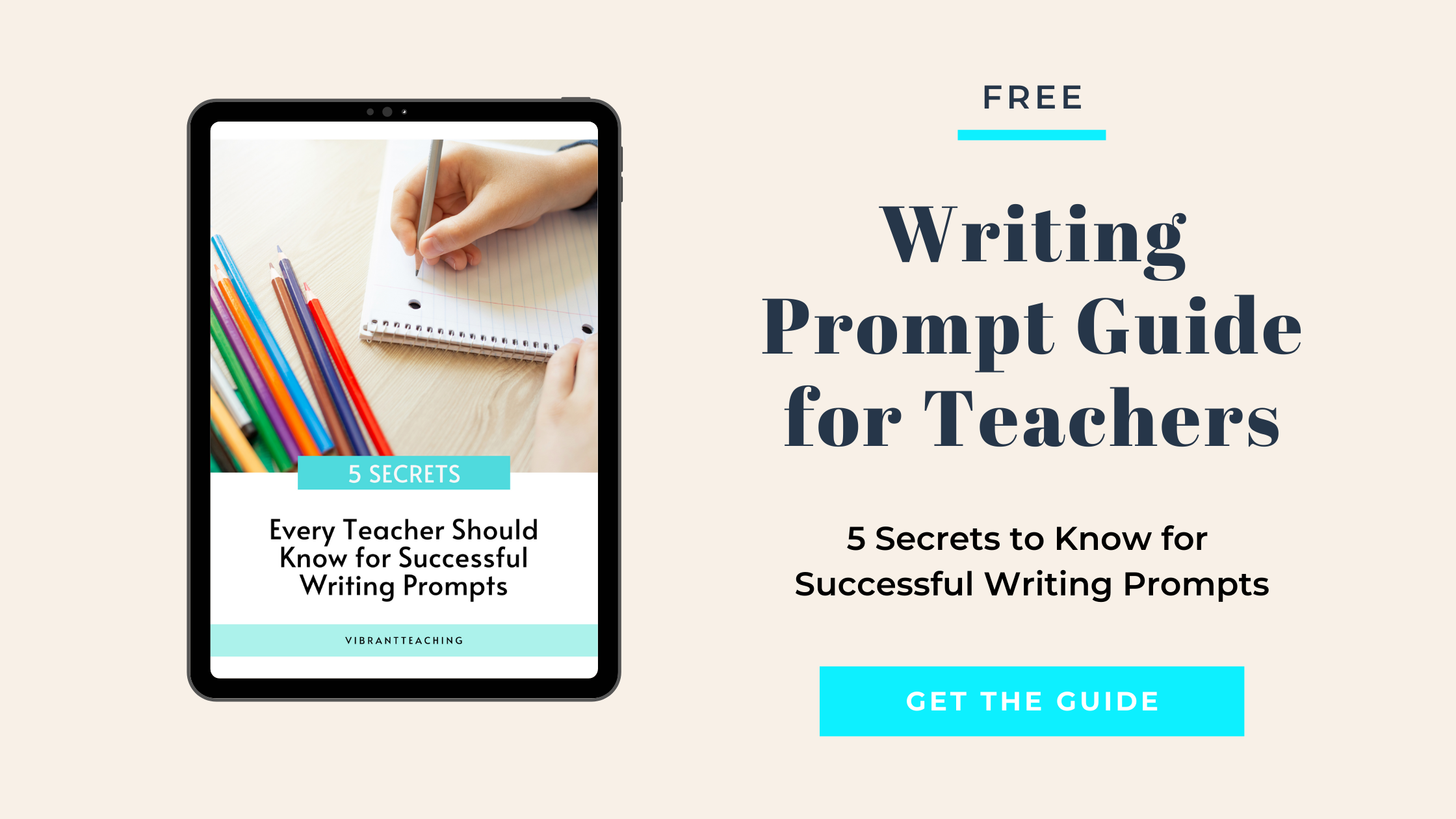
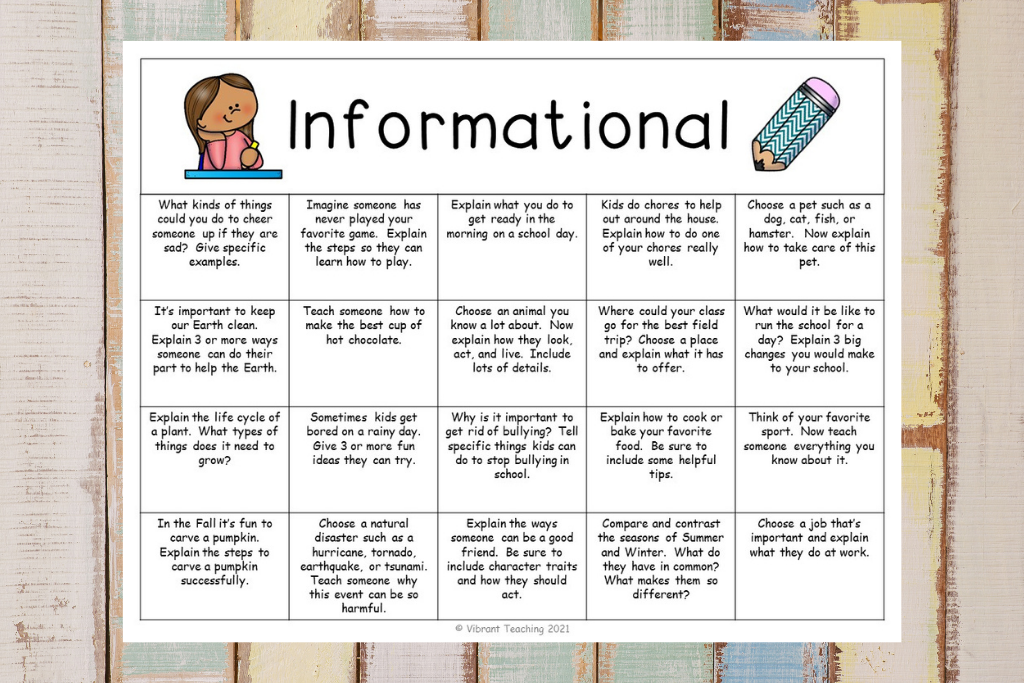



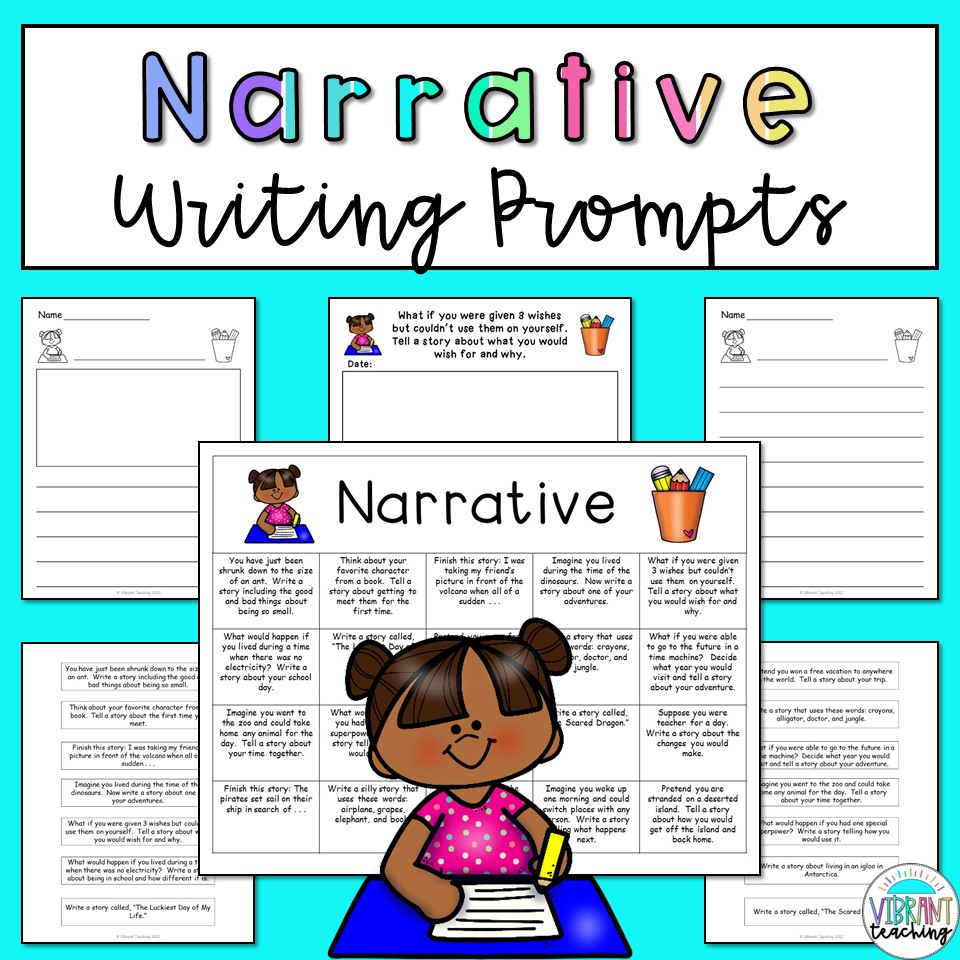
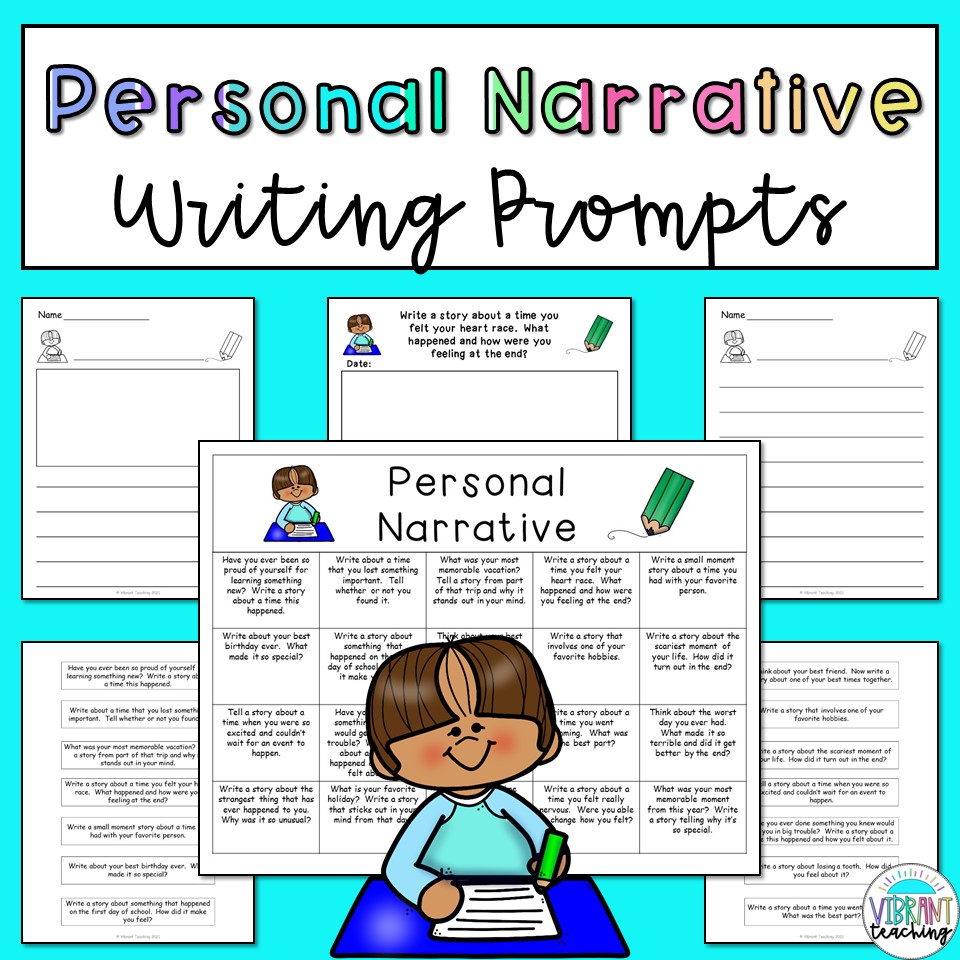
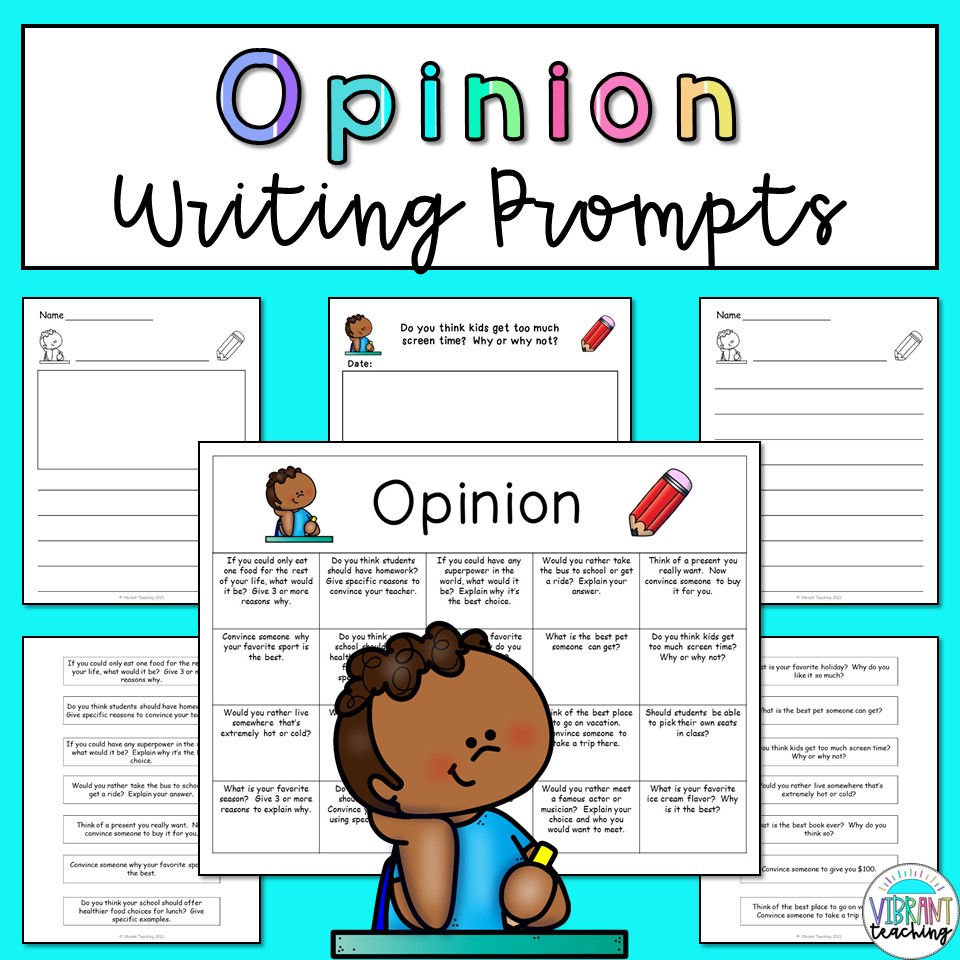
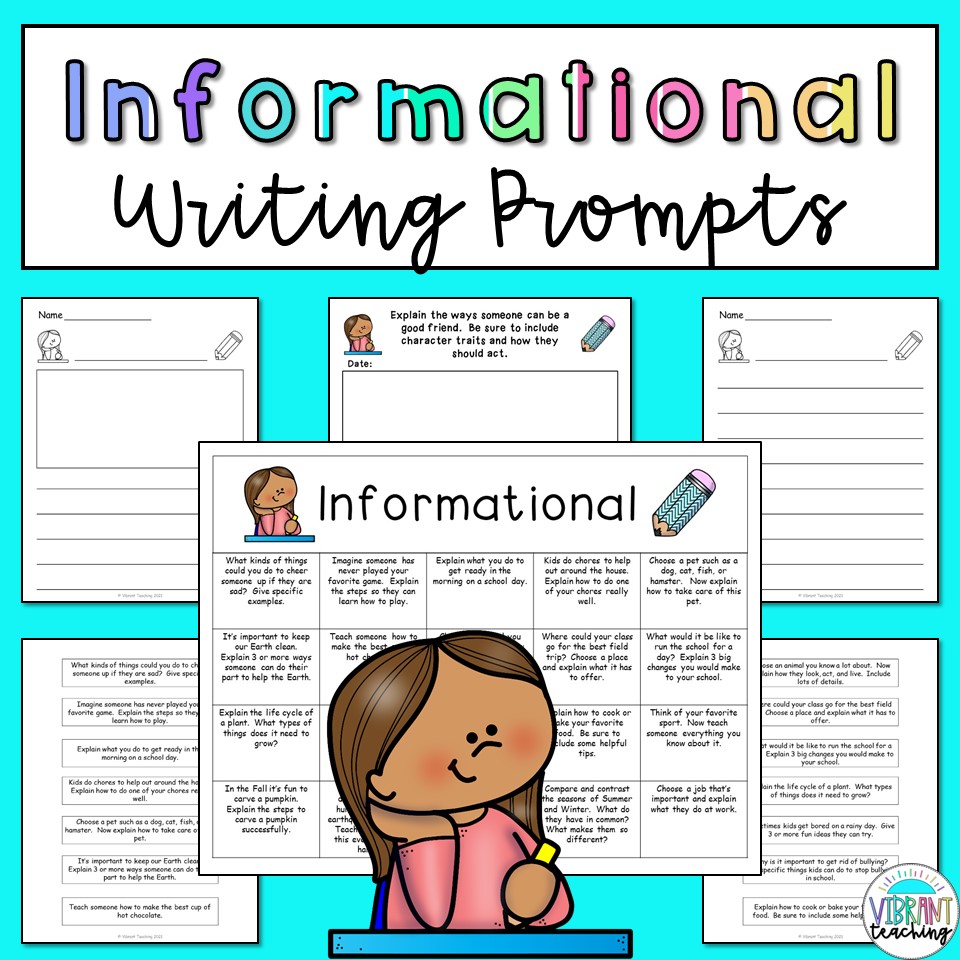
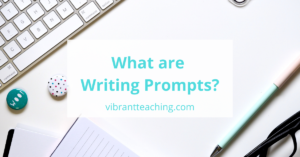


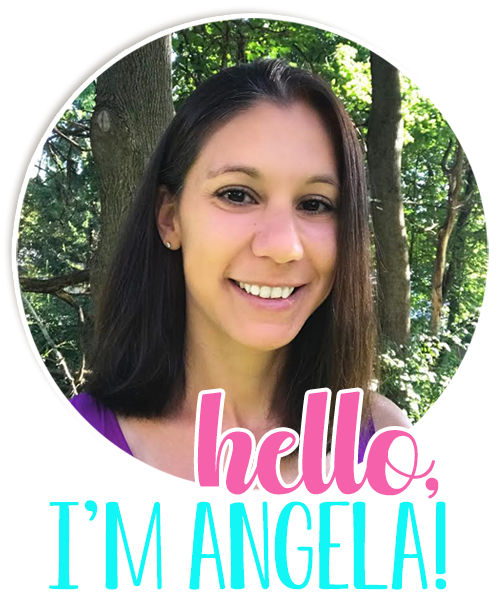
No Comments